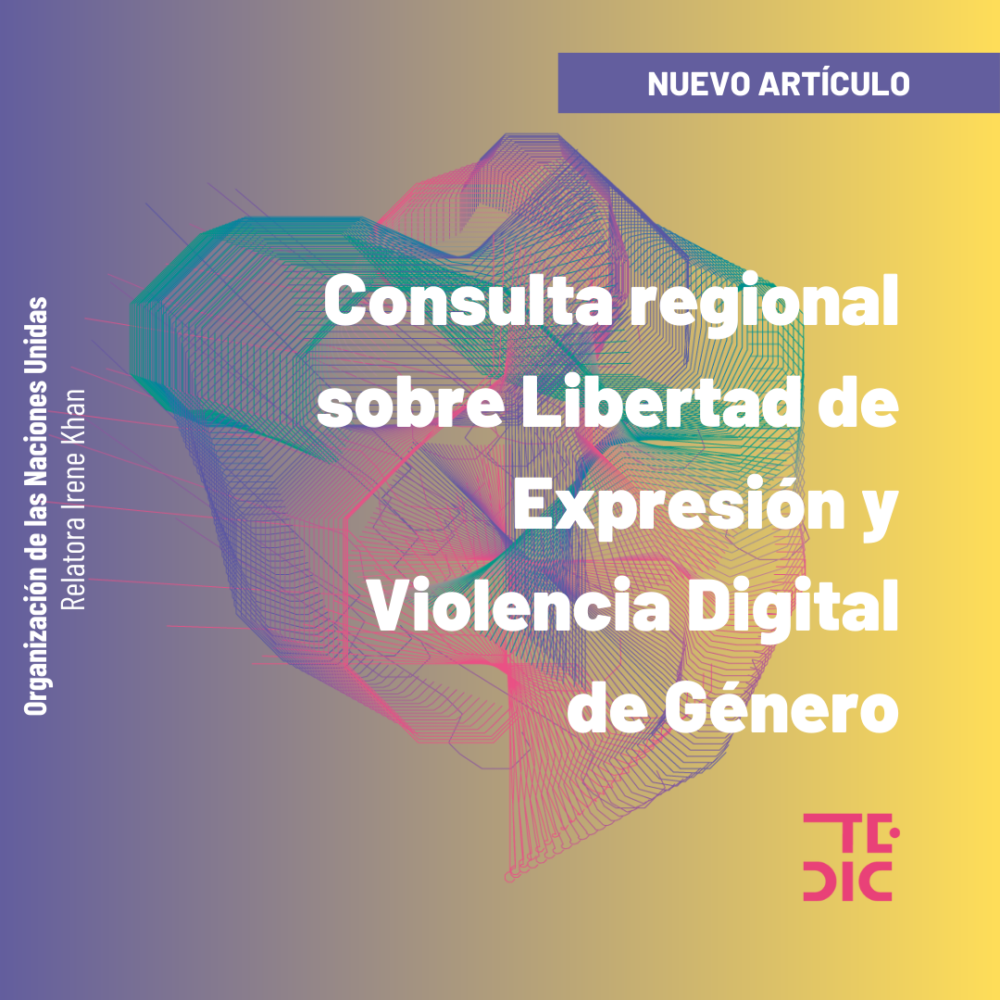
The consultation on Freedom of Expression and Digital Gender Violence in Latin America was led by the Association for Progressive Communications (APC) and TEDIC, with the support of IFEX.
It was conducted virtually on April 25, 2023, focusing primarily on addressing the persistent gender inequality on the Internet in the field of freedom of expression. Although women have made significant progress in this field, they still face the repression of their voices. In the digital age, the Internet has become a new battleground in the fight for women’s rights, offering opportunities to express themselves, but also multiplying the possibilities of repression. Technology plays a crucial role in women’s participation and expression, and particular attention is required to understand its impact.
When women exercise their freedom of expression, they face structural censorship based on gender inequality and discrimination. Furthermore, they pay a disproportionate price for raising their voice, suffering specific attacks that impact them differently. Additionally, they have limited access to the necessary information to form opinions and make decisions. Women and other historically vulnerable groups face multiple challenges due to their race, ethnicity, religion, sexual orientation, age, geographic location, social, economic, and legal status, among other factors.
Despite the rapid digitalization and increased internet use, for a long time, the diverse manifestations of online gender violence were not recognized by policymakers and authorities. However, this has been progressively changing, as United Nations General Assembly resolutions and Human Rights Council are beginning to address “online harms”. Reports by Special Rapporteurs on topics like gender justice and violence against women journalists have been fundamental in defining these concepts. Although progress has been made, some lament the lack of a unique and authoritative definition of online gender violence by the Committee on the Elimination of Discrimination against Women (CEDAW), as well as the lack of addressing misogynistic speech in Article 20(2) of the International Covenant on Civil and Political Rights (ICCPR).
In the Latin American regional consultation, led by APC and TEDIC, various forms of online gender violence were discussed, and there was an attempt to understand how women’s freedom of expression can be better protected. Important questions were raised, such as the difference between “gender misinformation” and other types of online harassment, the threshold for considering misogynistic speeches as “hate speech,” and the need for an updated definition of online gender violence. Furthermore, the strategic and practical value of these concepts for activists was explored, and global policy advocacy goals to address these challenges were established.
Below is a graphic summary of the moments discussed with more than 50 participants from over 20 organizations in the region:
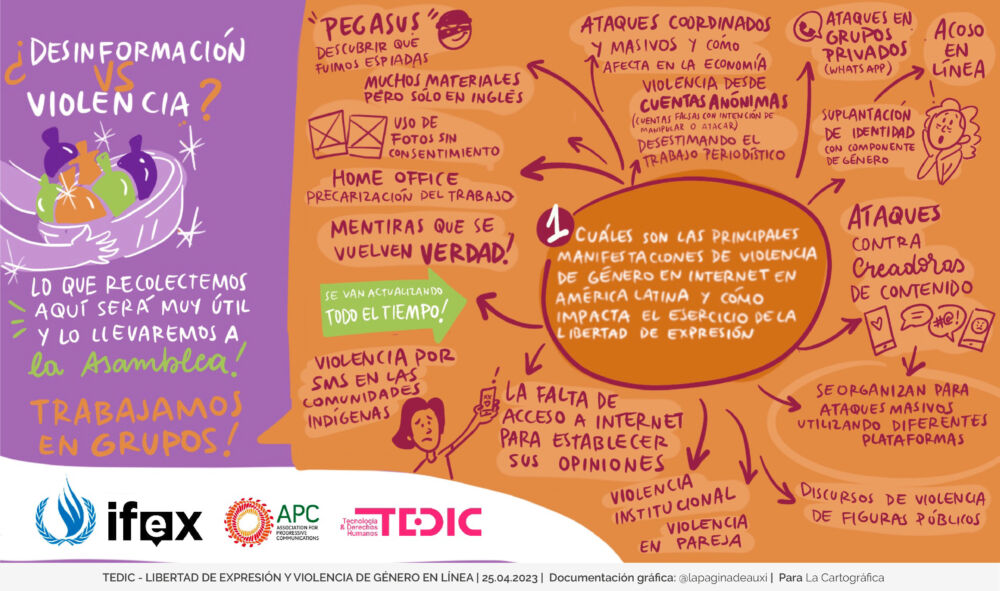
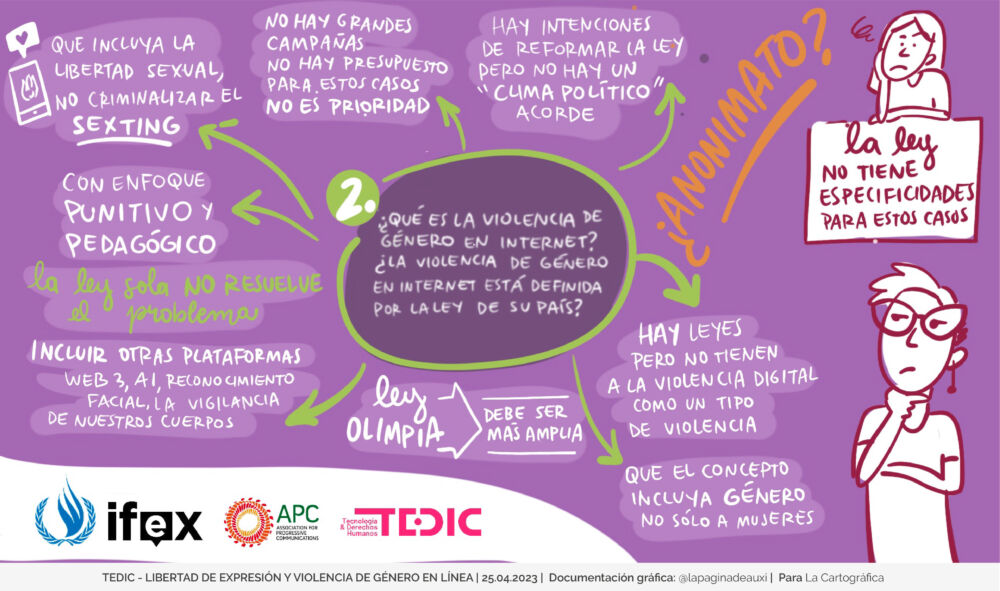
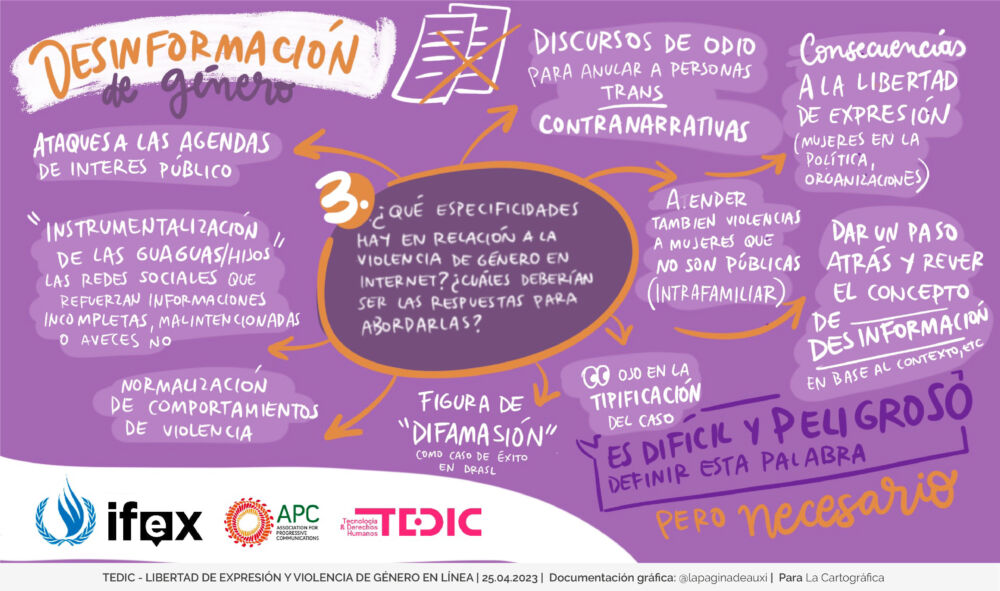

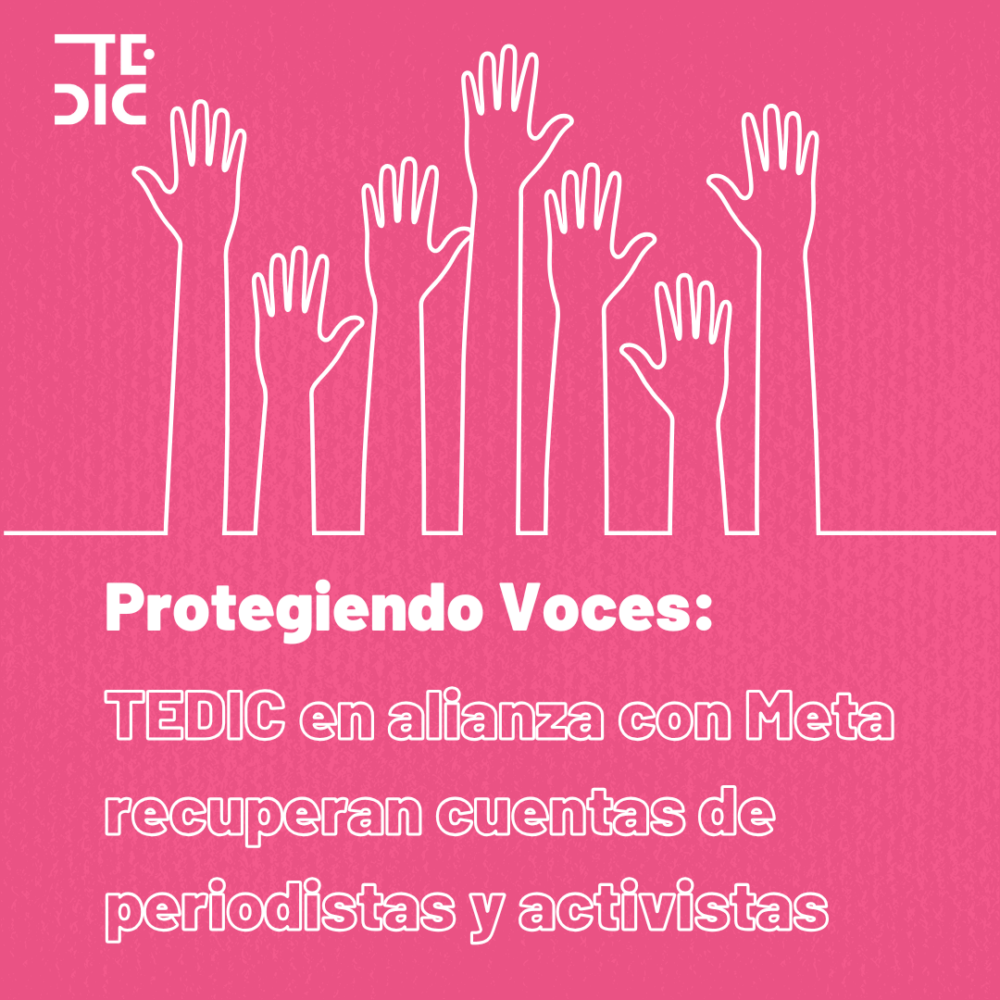 Defending those who defend us
Defending those who defend us